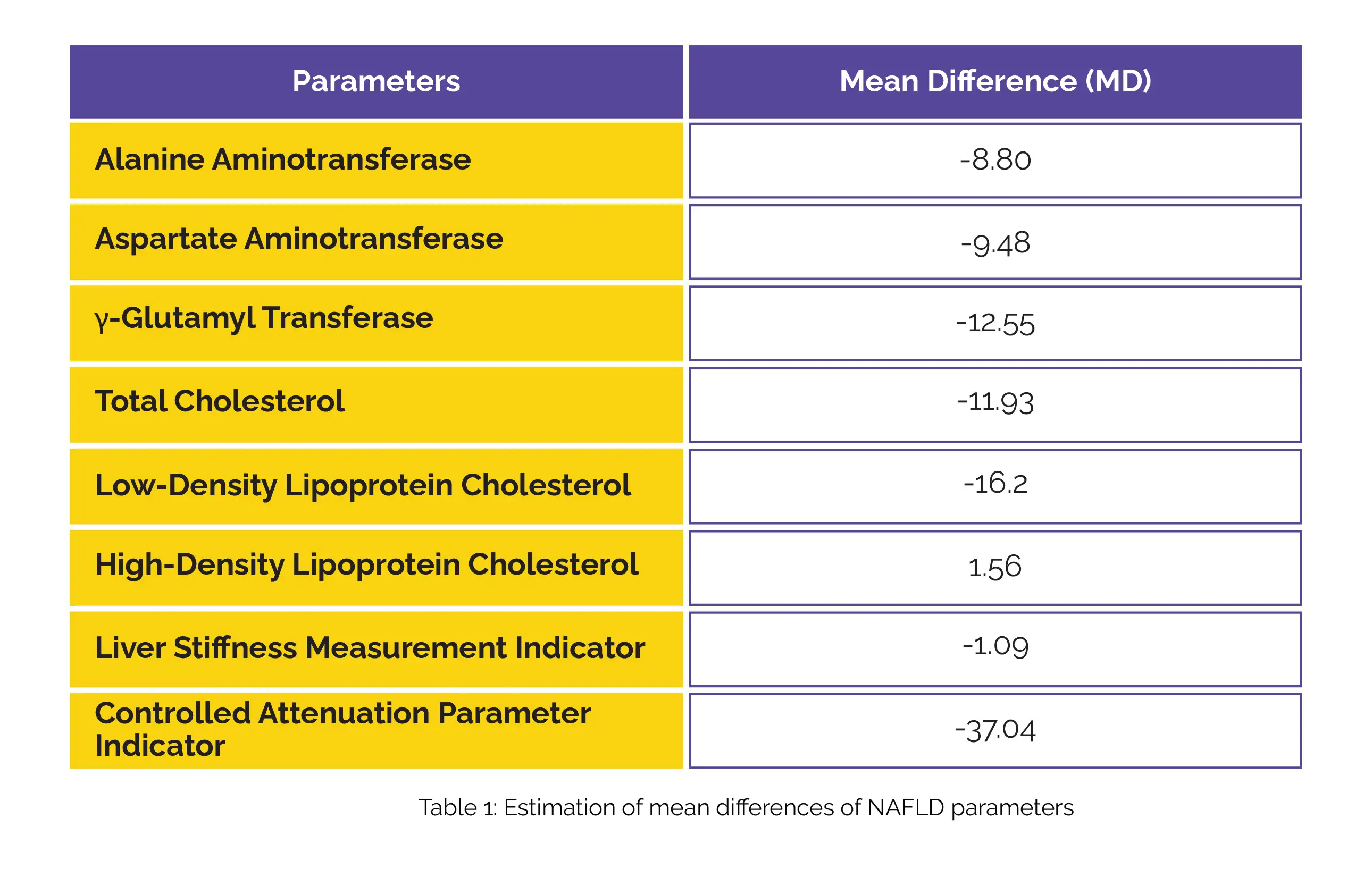Categories
Change Password!
Reset Password!


In patients suffering from NAFLD, using synbiotics is linked with improvement in the degree of liver fibrosis, lipid metabolism, and liver function.
According to a systematic review and meta-analysis, supplementation of synbiotics can boost liver function, regulate lipid metabolism, and decrease liver fibrosis in nonalcoholic fatty liver disease (NAFLD)-diagnosed people. The objective of the researchers was to thoroughly examine the therapeutic impact of synbiotics use in NAFLD.
For relevant literature search, databases like Web of Science, Cochrane Library, Embase, and PubMed were explored. After screening eligible studies, data from the selected research were extracted, pooled, and subjected to analysis. After screening eligible studies, extraction, combination, and analyses of the data were done.
In total, the analysis covered 10 randomized controlled trials incorporating 634 subjects diagnosed with NAFLD. The supplementation of synbiotics led to significant reductions in the levels of alanine aminotransferase, aspartate aminotransferase, and γ-glutamyl transferase among NAFLD patients.
In terms of metabolism, synbiotics also showed remarkable reductions in total cholesterol and low-density lipoprotein cholesterol, as well as an elevation in high-density lipoprotein cholesterol in NAFLD subjects. Furthermore, it also resulted in noteworthy decreases in liver stiffness measurement indicator and controlled attenuation parameter indicator among NAFLD patients (Table 1).

Synbiotics supplementation may be favorable in the treatment of NAFLD. However, the precise extent of these effects requires validation through additional research and studies.
Therapeutic Advances in Gastroenterology
The effect of synbiotics in patients with NAFLD: a systematic review and meta-analysis
Jiacheng Cai et al.
Comments (0)